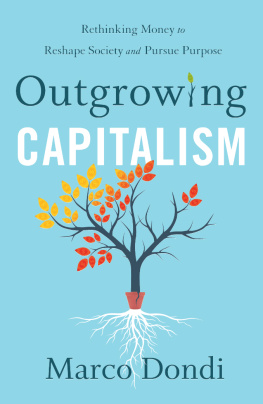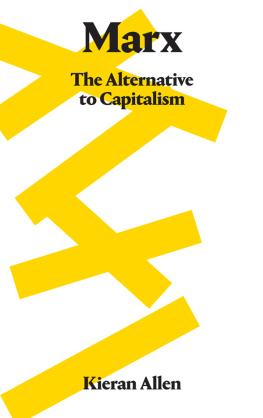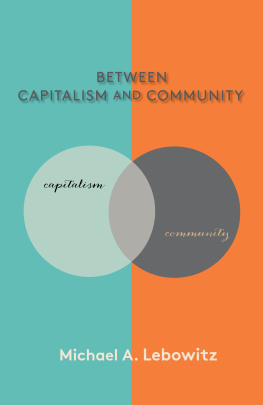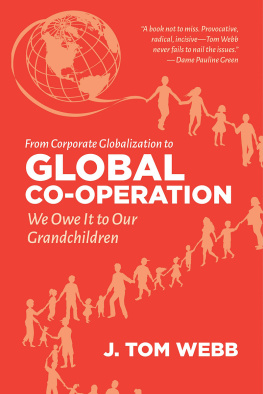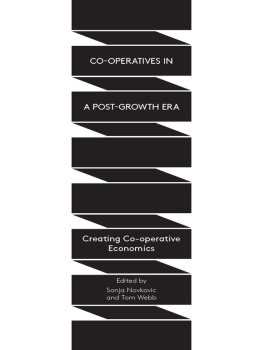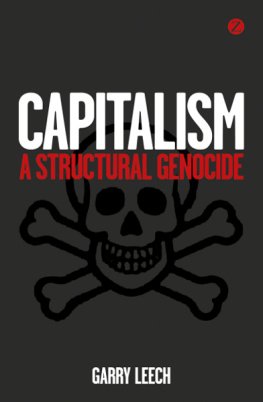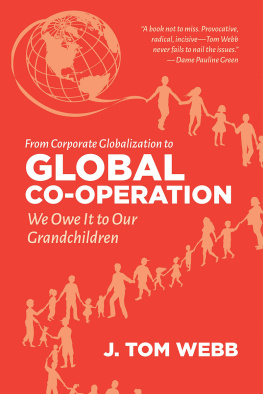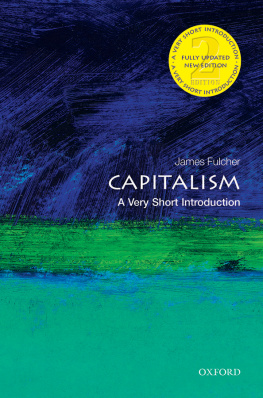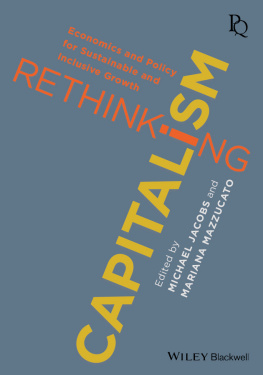
Acknowledgements
First, we should thank all the authors submitting entries to the 2012 Prize not just those that are reproduced here. Entrants came from all walks of life and submissions arrived from as far afield as Argentina and Italy. Giles Simon and the communications team at Co-operatives UK played an important role in getting news of the competition out into the wider world.
Essays with the authors names removed were distributed to the four judges, whom we also thank:
Ed Mayo Secretary General, Co-operatives UK
Rob Harrison Director, Ethical Consumer
Paul Fitzgerald Radical Political Cartoonist (with help from Eva Schlunke)
Katy Brown Director, Ethical Consumer
Thanks to Liz Chater and Jane Tuner at Ethical Consumer for administrative support for the submissions and judging process. Adele Armistead provided the web design and Tom Chafer-Cook the web programming for the Co-operative Alternatives website which helped to promote the project. Thanks also to Demetrio Guzzardi for working on the references. Thanks to Dan Raymond-Barker (marketing) and Chris Brazier (editing) at New Internationalist for their invaluable help with bringing this book to light.
And, last but not least, thanks to Unicorn Grocery, Co-operatives UK and Ethical Consumer magazine readers for their financial support for the project.


People Over Capital: The Co-operative Alternative to Capitalism
First published in 2013 by
New Internationalist Publications Ltd
55 Rectory Road
Oxford OX4 1BW, UK
newint.org
Copyright of all chapters is held by Ethical Consumer Research Association apart from (New Internationalist).
All rights to text specifically created for this book are reserved and may not be reproduced without prior permission in writing of the Publisher.
Front cover design: Andrew Kokotka/New Internationalist.

British Library Cataloguing-in-Publication Data
A catalogue record for this book is available from the British Library.
Library of Congress Cataloging-in-Publication Data
A catalog record for this book is available from the Library of Congress.
ISBN 978-1-78026-162-1
Contents
A selection of the most popular entries from the what one thing? online voting platform in 2012
Ed Mayo
If the claim of capitalism is that a system focused on and oriented around the accumulation of capital best serves society overall, then the idea of co-operation is its natural opposite. Co-operative models of economic life are focused on forms of wealth creation in which the needs of capital are subservient to the interests of people involved. It is a simple enough contrast, generating a wealth of insight included within the contributions of this book, and it does reflect an enduring challenge in economic life, is money our servant or our master?
Co-operative enterprises are member-owned businesses with some distinctive characteristics in terms of form and ethos. At an abstract level, the nature of co-operatives is defined by a cooperative identity statement proclaimed by the International Co-operative Alliance in 1995. These were endorsed by United Nations Guidelines in 2001, by an International Labour Organization Recommendation (193) in 2002, and have now been written into many co-operative laws around the world.
In practice, there is a diversity of co-operative forms in the UK and overseas. Apart from the investors of capital, there are three main economic stakeholders in any business: its consumers, the producers who supply inputs to or take the outputs from the business, and its employees. In a co-operative, usually one of these other stakeholders is put at the centre of the business as member owners. There are, therefore, four groups of cooperatives: consumer owned, producer owned, employee owned and multi-stakeholder combinations or hybrids of these. There is also continuous experimentation around key issues, such as the nature of membership, interest in community benefit and new models of financing.
The co-operative business model has a strong presence across a range of international markets. There are more than 800 million members of co-operatives in the world. Between them, they employ over 100 million people. This is 20 per cent more than the multinational enterprises. The largest 300 cooperatives in the world have an annual turnover of $1.1 trillion. In a few countries, co-operatives may have a dominant role in the economy.
The market share of co-operative enterprises provides a practical demonstration of the value that can be created on the basis of co-operative principles. In Finland, the co-operative sector is said to account for 21 per cent of GDP, in Switzerland 16 per cent and in Sweden 13 per cent. In Switzerland, for example, two societies dominate retail trade: Co-op Suisse and Migros, the latter having originally been a private company that was donated by its owner to its customers. They have a market share of 17 per cent and 32 per cent respectively. In New Zealand the largest domestic business, Fonterra, is a cooperative. Meanwhile, three-quarters of all fair trade goods are produced by co-operatives in developing countries.
Today, new technologies are reducing the barriers to mass participation and allowing an ever-widening circle of people to engage online in collaborative communities. In Charles Leadbeaters words, we are passing from an economy of by, from and to, to an economy of with. In the 20th century, he writes, we were identified by what we owned; in the 21st century we will also be defined by how we share and what we give away.
As discussed in some of the essays in this book, Wikipedia is a collaborative encyclopaedia project beyond the dreams of Robert Owen. Open source software is similarly based on collaborative volunteering and now accounts for 80 per cent of the software on computer servers worldwide. In health, for almost every chronic disease there are mutual support websites and email lists, many of them global. In the arts, creative collectives are emerging as new forms of mutual aid. In education, mutual learning sites have multiplied and there has been a proliferation of web-based communities of practice.
Robin Murray, who has contributed the first chapter in this book, produced a review of the UK co-operative sector in 2010 called Co-operation in the Age of Google. In it, he concludes that:
all these and a multitude of other examples are co-operatives without walls. Their practices reflect many of the seven co-operative principles: voluntary and open membership, member participation, autonomy and independence, education and information, and connection to other related groups. Their forms of democracy vary. What is distinct about them is that their inputs, their outputs and their distribution are largely free. People contribute voluntarily. There is open access to the outputs on the condition that any use made of them is also free. It is at heart a gift economy, based on core principles of co-operation reciprocity and mutual respect
Next page

